Publications on People Who Inject Drugs (PWID)
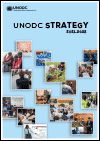
Resource | Publications,
The mission of the United Nations Office on Drugs and Crime (UNODC) is to contribute to global peace and security, human rights and development by making the world safer from drugs, crime, corruption and terrorism by working for and with Member States to promote justice and the rule of law and build resilient societies.
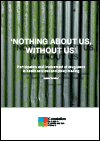
Resource | Publications,
There is an increasing tendency to get service users, such as Drug Users (DU’s) involved in health services and health policies. Participation is seen as an indispensible ingredient for good and effective policymaking and there exist numerous best practice examples of peer involvement in the field of health promotion and prevention. Health policies and health interventions are considered to be more effective and supported, when all relevant parties and communities (including civil society and the final target group) are being involved equally. In addition, policy makers and professionals realise that it is no longer appropriate to talk about and not with the final target group. All kind of communities and also DU’s demand their rights: they want to be heard and they want to be taken serious.
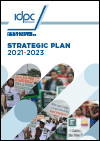
Resource | Publications,
The Strategic Plan further cements IDPC's position as the global drug policy reform network, with over fifteen years of experience and constantly growing in reputation, size, scope, influence and reach.
The IDPC Strategic Plan 2021-2023 will guide our network as it builds on the irreversible global momentum for drug policy reform, strengthens partnerships, and deepens bonds of solidarity with like-minded movements against oppression.
The new Strategic Plan also updates the network's vision and mission, reflecting our movement's maturity, ambition and purpose.
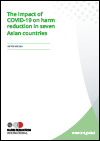
Resource | Publications,
Understanding the impact of COVID-19 on harm reduction funding and service provision is essential for informing donor and government action as well as civil society advocacy.
This report and briefing summarise evidence from civil society in seven Asian countries (Cambodia, India, Indonesia, Nepal, Thailand, the Philippines and Vietnam) and provides recommendations to donors and governments on protecting harm reduction in the COVID-19 era.
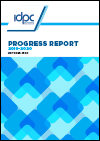
Resource | Publications,
The past year has been one of both consolidation and growth of the IDPC network. Despite a challenging geo-political climate and increased pressure on civil society space, there is no doubt that the drug policy reform movement continues to grow and attract new voices and allies. The IDPC Secretariat is proud and humbled to support and amplify the work of so many diverse and committed advocates from all over the world.
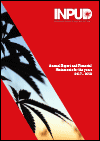
Resource | Publications,
"We live in a very difficult time in human history with many uncertainties and complex problems. The systemic human rights abuses faced by illicit drug users is one problem that can actually be fixed with the rescinding of the global UN conventions that legitimise and perpetuate the “war on people who use drugs.” INPUD is playing a crucial role in making the case for an end to the failed global policy of prohibition and there is much work to be proud of that you can see in this document.
INPUD’s presence in global advocacy forums is especially important. INPUD provides a global voice for a community that has struggled in the face of adversity and oppression to gain access to basic respect let alone access to harm reduction services. The time has come for those who know that prohibition is tantamount to genocide to speak up and help INPUD, user organisations and drug users all around the world.
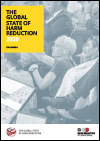
Resource | Publications,
This is the seventh edition of the Global State of Harm Reduction, compiled in a year when public health was leading the news agenda around the world. COVID-19 and the related measures introduced worldwide continue to disrupt life as we know it. This year the report added a new chapter dedicated to the impact of COVID-19 on harm reduction service delivery and people who use drugs. Also provided dedicated chapters on hepatitis C and tuberculosis (TB) to broaden the focus, in pursuit of a global health perspective.
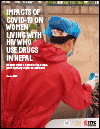
Resource | Publications,
A participatory research tool was developed collaboratively by Dristi Nepal (hereafter ‘Dristi’), and ITPC to capture and assess the impact of Covid-19. The qualitative survey tool used images and emoticons to encourage participants, regardless of literacy, to relate their experiences of healthcare services as people living with HIV, and to rank their government’s actions on health provisions and human rights both prior to and during the Covid-19 pandemic. Every component of the tool’s development and implementation was collaborative, from the formulation of indicators, to its inclusive design and analysis of findings.
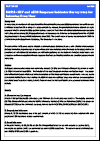
Resource | Fact Sheets,
In Hong Kong, the number of HIV cases transmitted through injecting drug use (IDU) has remained low up till now and contributed to less than 5% of all reported cases cumulatively. However, the potential risk of cluster outbreak and rapid upsurge of infection among the IDU population is always a concern. To monitor HIV-related risk behaviours and access to HIV testing services among IDU, this population has been included as one of the four at-risk populations in the HIV/AIDS Response Indicator Survey (HARiS) implemented since 2013. The seventh round of survey was conducted in 2019 via commissioning to the Department of Sociology, The University of Hong Kong.
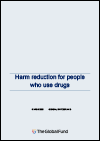
Resource | Publications,
This technical brief describes how interventions for people who use drugs are to be incorporated into funding requests to the Global Fund. The Global Fund is the major source of international funding in low-and middle-income countries for harm reduction, and it supports evidence-based interventions aimed at ensuring access to HIV prevention, treatment, care, and support for all key populations, including people who use drugs.





